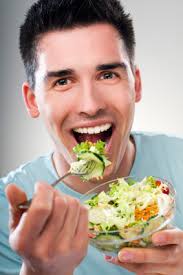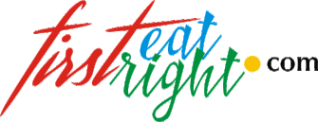Decreased Stress Levels Offer More than Peace of Mind, A Decreased Intake of Unhealthy Foods Too!10/31/2019
 Self-efficacy Optimizes Healthy Eating Habits Self-efficacy Optimizes Healthy Eating Habits Stress reigns supreme in present-day world and humans are ready to give anything to overcome it. They don’t mind spending thousands of rupees for a relaxing spa, long for an annual holiday in a five-star holiday resort after working their ass off during the rest of the year or don’t mind shelling out money for a rejuvenating yoga or meditation session in the foothills of the Himalayas. Some others succumb to comfort eating or binge eating to address stress which can lead to multiple health issues including obesity and overweight problems. Stress is a complex physiological state that includes a range of physiological and behavioural processes that occur when there is a real or perceived threat to homeostasis. Stress is often related to work pressure, economic crunches, family problems, increased responsibilities and other such cases that can impact several aspects of life including physical, behavioural and psychiatric manifestations. Getting a new job is satisfactory but the pressure to scale great heights brings on stress; admission into a reputed college is exciting but accommodating to the new routine, hostel life and academic workload, especially for medical students, causes sleep deprivation, stress and drastic modifications in eating habits. Changes in eating habits that include unhealthy food practices increase the risk of chronic diseases. But stress indeed increases the consumption of high-fat and processed foods that are high in sodium levels too. But why? That’s mainly because of the release of cortisol hormones that increase the intake of high fat foods to overcome stress. An animal study found rewarding properties of sugary foods on providing stress relief and also the fact that long-term intake of dietary fats and their removal thereon can promote stress-related outcomes. Yet another study found that high-stressed women opted for high-fat food compared to low-stressed women. Impact of Low Stress Levels on Lower Fat & Sodium Intake Adolescents and youngsters generally are in the habit of consuming more processed foods compared to other groups of people. These are also the category of individuals who love to live a sedentary lifestyle. The young adult population around the world which includes the North American population too ingest more fat and sodium that’s above proclaimed health limits. Health Canada postulates that 25% of males and 23% of females above the age of 19 consume fat above recommended levels. Also, 99% of males and 73% of females aged 19-30 years consume more than the maximum permitted levels of 2300 mg of sodium per day. It is not something new that this population enjoys eating processed foods as it is tasty, convenient and easy but studies behind increased intake of such foods also show that stress increases poor eating behaviour especially among the young adult population. While most studies showed an association between increased stress and increased intake of fat- and sodium-rich foods there are also a few studies that show that increased stress causes decreased intake of such foods. Hence, self-efficiency exists as an important factor to consider when it comes to stress and food intake. Self-efficacy is the ability of the individual to manage a demand in the presence of obstacles. Lower levels of stress result in greater self-efficacy among individuals. Various studies have led to different conclusions with regard to stress, nutrient intake and self-efficacy that are not constrained to food intake behaviour and only one study has assessed the role of diet self-efficacy in the relationship between stress and food intake. This study showed that women reported lower diet self-efficacy and greater levels of stress compared to men and, obese individuals had lower self-efficacy compared to normal-weighted participants. The study below helps us understand the role of stress on fat and salt intake and how self-efficacy alters this in young adults. A 15-item questionnaire was used to mark down values relating to demographic information of participants such as age, sex, height, weight, etc. A 20-item diet self-efficacy questionnaire tested his/her ability to refrain from high-fat and high-sodium foods despite such items being present in front of the participant on a scale of 0-100. Another 10-item questionnaire helped measuring self-efficacy on a score of 0-40. Stress was measured with a potential score of 56 using a 14-item self-report questionnaire. A 17-item questionnaire evaluated an individual’s fat intake over a 1-month period and a 28-item questionnaire evaluated an individual’s sodium intake over a 1-month period. 130 (19 males and 111 females) individuals participated in the study and the participants were undergraduate students from the Ryerson University in Toronto. The average age of participants was 20.62 years and 85% of them were females. Results showed that:
Relationship between Stress & Fat Intake in Medical Students Doctors are saviours of our lives and medical students face increased levels of psychological distress compared to other groups of students due to reasons such as academic pressure, sleep deprivation and workload. A cross-sectional study was conducted in undergraduate students who were asked to self-report on the amount of fat intake. There were 15 questions probing on the eating habits of the participants over the past year with a list of foods high in fat content. Every question had 5 options (less than once per month, 2-3 times per month, 1-2 times per week, 3-4 times per week and ≥5 times per week) scored from 0 to 4 points. Total score was calculated by adding individual responses and then splitting them into two categories-low fat intake (<25 points) and high fat intake (>25 points). Participants with ≥27 points were considered to consume a diet with very high fat content. 14 items evaluated the perception of stress during the last month with 5 options of response for each question-never, almost never, sometimes, fairly often and very often. Score ranges were from 0 to 56 with higher score ranges indicating higher levels of perceived stress. A total of 523 students (272 of them were females) with a mean age of 19 years participated in the study and their overall mean level of perceived stress was 25.9-18.8 in the low group and 26.7 in the high stress group. 42.4% participants displayed high fat intake and 30.4% reported very high fat intake-males (47.4%) ate more fatty foods than females and younger (62.9%) participants consumed more high-fat food comparatively. The proportion of subjects consuming more fatty food was predominant among those in the highest tertile of stress category (53.2%) compared to those in the middle tertile (46.3%) and lowest tertile (28%). This study shows that increased stress levels was associated with higher fat intake and more than 40% students reported high fat consumption. References A Survey of Diet Self-efficacy & Food Intake in Students with High & Low Perceived Stress: https://nutritionj.biomedcentral.com/articles/10.1186/s12937-015-0026-z Perceived Stress & High Fat Intake: A Study in a Sample of Undergraduate Students: https://journals.plos.org/plosone/article?id=10.1371/journal.pone.0192827 Comments are closed.
|
AVOID FRAUD. EAT SMART+91 7846 800 800
|
- Home
- Written Testimonials
- Consult
- Clinics
- Blogs
-
Diet & Nutrition
- Diabetes Reversal
- IVF IUI not needed for PCOS PCOD Infertility
-
Medical Nutrition
>
-
Disease & Conditions
>
- Infertility | PCOS
- Diabetes Mellitus
- Cholesterol
- Hypothyroid
- Kidney Problems
- Hypertension
- Cardiovascular Diseases
- Liver Diseases
- Gastro intestinal disorder
- Cancer
- Metabolic Disorders
- Orthopedic Disorders
- Eating Disorders
- Dietary Recall
- Weight Record Filled By Clients
- Online Payment Transaction Details
- Online Clients Weight Check Form
- Our Program Package Service Charges
- Weight Record 2017 Clients
- Measurements sent by Clients
- Terms & Conditions Of Payment
- Thanks. Your Form is Submitted
- Video Testimonials
- Lifestyle & Wellness
- Lifestyle & Wellness Blog
- Allergy & Intolerance
- Weight Loss / Gain
- Weight Loss / Slimming Blog
-
Disease & Conditions
>
- Life Cycle Nutrition >
- Sports Nutrition >
- Integrity in Nutrition
- Knowledge Centre
© COPYRIGHT 2022. ALL RIGHTS RESERVED. FRST HEALTHCARE PVT LTD.
Dr. Nafeesa Imteyaz of First Eat Right clinic, is the Best Dietitian Nutritionist in Bangalore. Best Dietitian Nutritionist in Pune. Best Dietitian Nutritionist in Hyderabad. Best Dietitian Nutritionist in Chennai. Best Dietitian Nutritionist in Mumbai. Best Dietitian Nutritionist in Delhi. Best Dietitian Nutritionist in Kolkata.



